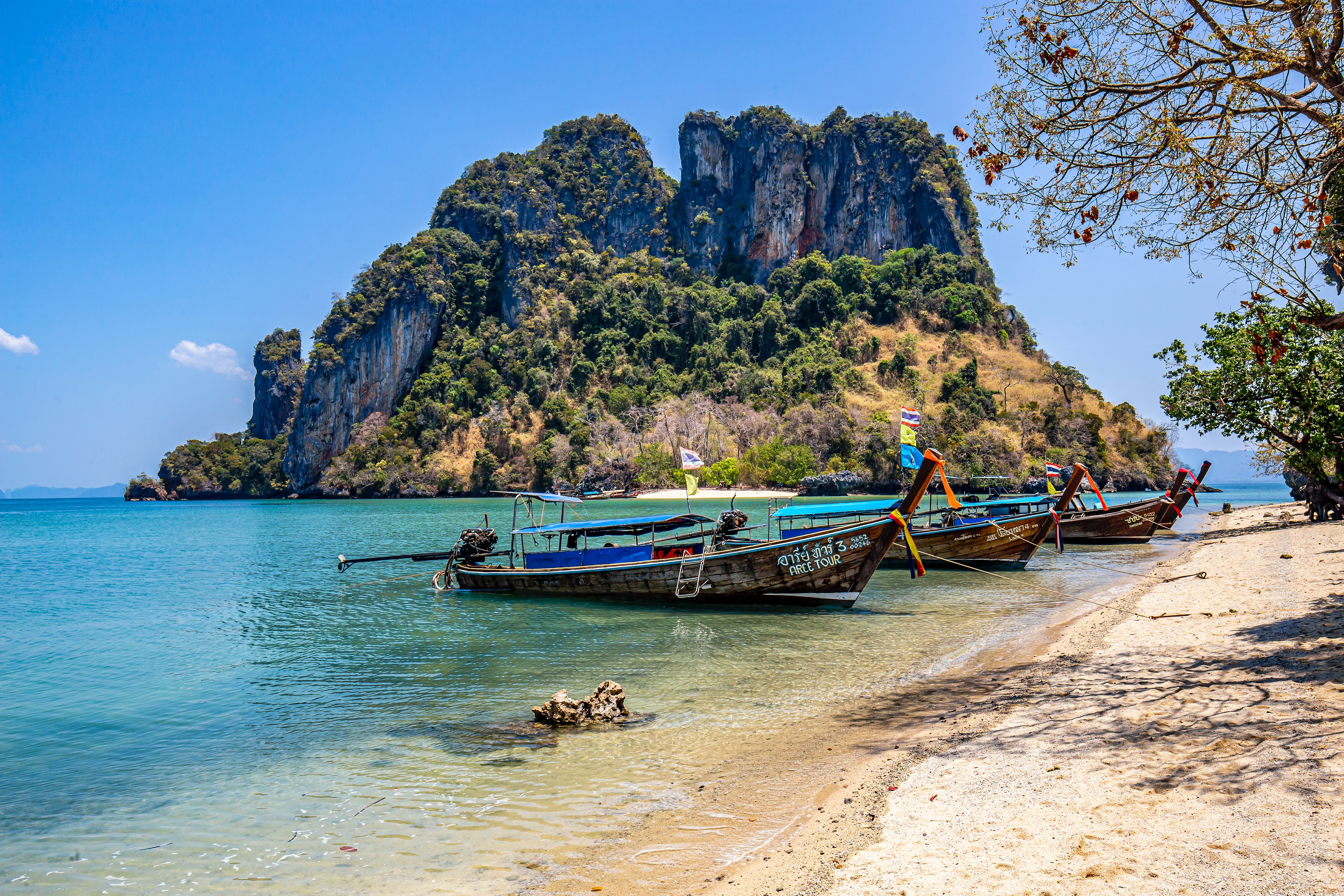Traveling to a new destination can be an exciting adventure, but navigating unfamiliar territory can also be overwhelming. Hiring a tourist guide can enhance your travel experience by providing local insights, historical context, and valuable tips. However, choosing the right tourist guide is essential to ensure a memorable and fulfilling journey. In this comprehensive guide, we will explore essential tips on how to select the perfect tourist guide while traveling. Whether you’re exploring a bustling city or a remote wilderness, these insights will empower you to make the best choice and create lasting memories during your travels.
Research and Read Reviews:

Before choosing a tourist guide, conduct thorough research about available options. Check online reviews and testimonials from previous travelers to gauge the guide’s professionalism, knowledge, and expertise. Reading firsthand experiences will give you valuable insights into the guide’s performance. Tourist guide reviews, traveler testimonials, finding a reliable tourist guide.
Verify Credentials and Experience:
Ensure that the tourist guide is licensed and certified by the appropriate authorities. Look for guides with extensive experience in conducting tours in the specific destination you’re visiting. Experienced guides are more likely to have in-depth knowledge of the area and offer enriching experiences. Licensed tourist guide, experienced tour guide, certified travel guide.
Sphinx: Unraveling the Mysteries of Egypt’s Enigmatic Guardian
Tailored Expertise:
Consider your travel interests and preferences when selecting a tourist guide. Choose a guide whose expertise aligns with your areas of interest, whether it’s history, architecture, wildlife, or culinary delights. A guide with tailored knowledge will make your trip more engaging and enjoyable. Tour guide expertise, personalized tour experiences, tailored tourist guide.
Language Proficiency:
Ensure the tourist guide is fluent in a language you are comfortable with. Effective communication is crucial to understanding the local culture, history, and directions during your journey. Multilingual tourist guide, language proficiency, effective communication.
Group Size and Personal Attention:
Inquire about the typical group size for the tours conducted by the guide. Smaller groups often allow for more personalized attention and interaction with the guide, resulting in a more immersive experience. Small group tours, personalized attention from tourist guide.

Flexibility and Customization:
Choose a tourist guide who is flexible and open to customization. Some travelers may prefer a structured itinerary, while others may wish to explore off-the-beaten-path destinations. A guide willing to adapt to your preferences will enhance your travel experience. Flexible tour guide, customizable tours, personalized itineraries.
Safety and Security:
Safety should always be a top priority while traveling. Ensure that the tourist guide follows safety protocols and has emergency procedures in place. A responsible guide will prioritize your well-being throughout the journey. Tour guide safety protocols, responsible tourist guide, travel security.
Transparent Pricing:
Discuss the tour cost and inclusions upfront to avoid any unexpected expenses during the trip. A transparent guide will provide a clear breakdown of pricing and inform you of any additional charges beforehand. Transparent tour pricing, upfront cost breakdown, all-inclusive tour packages.
Local Connections and Recommendations:
A well-connected tourist guide can offer you access to unique experiences and hidden gems. Inquire about the guide’s local connections and recommendations for authentic local encounters. Well-connected tour guide, local recommendations, insider tips.
Social Proof and Referrals:
If possible, seek referrals from friends, family, or fellow travelers who have previously used the services of the tourist guide. Social proof and recommendations from trusted sources can help you make an informed decision. Tourist guide referrals, social proof, word-of-mouth recommendations.
Choosing the right tourist guide can elevate your travel experience from good to exceptional. By conducting thorough research, verifying credentials, and considering personal preferences, you can select a guide who will enrich your journey with local insights, historical context, and memorable encounters. Remember to prioritize safety, clear communication, and personalized attention throughout your travels. A well-chosen tourist guide will not only be your gateway to a destination but also a key player in creating cherished memories of your adventures around the world. Happy travels!
Who is a guide in tourism?
A guide in tourism, also known as a tourist guide or tour guide, is a person who provides assistance, information, and interpretation to travelers during their visits to various destinations. These guides are knowledgeable about the history, culture, traditions, and attractions of the places they are guiding tourists through. They play a crucial role in ensuring that travelers have a smooth and enriching experience while exploring new locations.
The responsibilities of a guide in tourism include:
- Providing Information: Tour guides offer detailed information about the historical significance, architectural features, and cultural aspects of the sites visited. They share interesting facts and stories to engage and educate travelers.
- Guiding Tours: Tour guides lead travelers through cities, historical sites, museums, natural landmarks, and other attractions. They ensure that the group follows a well-planned itinerary and sticks to the schedule.
- Facilitating Communication: Tour guides often act as intermediaries between travelers and locals, helping bridge language barriers and facilitating communication. They may also assist with translating signs or menus to help travelers understand better.
- Ensuring Safety: Guides prioritize the safety of their group, ensuring everyone stays together and follows safety protocols, especially in crowded or unfamiliar areas.
- Offering Local Insights: Tour guides often provide insights into local customs, traditions, and etiquette, helping travelers better understand and appreciate the culture of the destination.
- Managing Logistics: They handle logistical aspects of the tour, such as transportation arrangements, entrance fees, and reservations, so travelers can focus on enjoying the experience.
- Handling Questions and Concerns: Tour guides address questions and concerns raised by travelers, providing personalized attention and ensuring that everyone feels comfortable and informed.
- Creating Engaging Experiences: A good tour guide knows how to engage the group, making the tour enjoyable, interactive, and memorable for everyone involved.
Tour guides can work for travel agencies, tour companies, museums, cruise ships, or operate independently as freelancers. They often undergo specialized training and education to gain in-depth knowledge about the destinations they guide travelers through.
Overall, a guide in tourism plays a vital role in enriching the travel experience, making it more informative, enjoyable, and culturally immersive for tourists exploring new places.

What is the role of a guide?
The role of a guide can vary depending on the context and industry they work in. However, in general, the primary role of a guide is to provide assistance, information, and direction to individuals or groups during their exploration of a particular place, site, or activity. Guides play a crucial role in ensuring that the people they are assisting have a safe, enjoyable, and enriching experience.
Here are some key roles of a guide
- Information and Education: One of the main roles of a guide is to provide accurate and relevant information about the place, site, or activity being explored. They share historical facts, cultural insights, and interesting details to enhance the understanding and appreciation of the destination.
- Interpretation and Explanation: Guides interpret the significance of landmarks, artifacts, and natural features, helping visitors understand their importance and context. They explain the stories and legends associated with places, bringing history and culture to life.
- Safety and Security: Guides prioritize the safety and security of the people they are guiding. They ensure that travelers follow safety protocols, stay together as a group, and navigate challenging terrains or crowded areas without risks.
- Facilitating Communication: In situations where language barriers exist, guides often act as interpreters, helping to bridge the gap in communication between travelers and locals. They may also translate signs or menus to assist travelers.
- Planning and Organization: Guides are responsible for planning and organizing the itinerary for tours or activities. They ensure that the schedule is followed, and logistics, such as transportation and reservations, are well-managed.
- Managing Group Dynamics: For group tours, guides manage the dynamics within the group, ensuring that everyone is engaged and included. They foster a positive atmosphere and encourage interaction among travelers.
- Providing Recommendations: Guides offer recommendations for additional activities, dining options, and experiences in the destination. Their local knowledge helps travelers discover hidden gems and lesser-known attractions.
- Personal Assistance: Guides provide personalized attention to travelers, addressing their questions, concerns, and individual needs throughout the journey.
- Creating Engaging Experiences: A skilled guide knows how to make the tour or activity engaging and interactive, catering to the interests and preferences of the participants.
- Preserving the Environment and Culture: Guides promote responsible and sustainable tourism practices, emphasizing the importance of respecting the environment and local culture.
The role of a guide can be found in various industries, including tourism, travel, museums, historical sites, adventure activities, and educational programs. Whether it’s a city tour, a nature excursion, or an educational visit, a guide’s presence can significantly enhance the overall experience for travelers and visitors.
Is a tour guide a leader?
Yes, a tour guide can be considered a leader in the context of guiding and leading a group of travelers during a tour or activity. As a tour guide, their primary responsibility is to lead and facilitate the journey, ensuring that the group has a safe, enjoyable, and informative experience.
There are several ways in which a tour guide acts as a leader.
- Providing Direction: A tour guide takes charge and leads the group through the planned itinerary. They provide direction, ensuring that the group moves smoothly from one location or activity to another.
- Decision Making: Tour guides make decisions on behalf of the group, especially in situations where choices need to be made, such as selecting the best route or adjusting the schedule due to unforeseen circumstances.
- Knowledge and Expertise: As leaders, tour guides possess extensive knowledge about the destination, its history, culture, and attractions. They share this expertise with the group, guiding them through the significance of the places they visit.
- Communication: Effective communication is a crucial leadership skill, and tour guides excel in this area. They convey information, instructions, and important details clearly and confidently.
- Safety and Security: Tour guides prioritize the safety and security of the group. They lead by example, ensuring that safety protocols are followed, and any potential risks are minimized.
- Group Management: Tour guides manage the dynamics within the group, fostering a positive and cohesive atmosphere. They encourage interaction among travelers and promote a sense of camaraderie.
- Problem-Solving: In case of unexpected challenges or issues during the tour, the tour guide takes charge of problem-solving and finding appropriate solutions.
- Empowerment and Inspiration: A good tour guide empowers and inspires the group, making the experience enjoyable, engaging, and memorable.
- Time Management: Tour guides are responsible for managing time effectively, ensuring that the group adheres to the schedule and maximizes their time at each destination.
- Responsible Tourism: Tour guides lead by example in promoting responsible and sustainable tourism practices, educating the group about the importance of respecting the environment and local culture.
While a tour guide’s leadership style may vary, their role as a leader is integral to providing a successful and enriching experience for travelers. They not only lead the way but also share their passion for the destination, making the journey more meaningful and enjoyable for the group.
Is tour guide a good job?
Whether being a tour guide is considered a good job depends on various factors, including individual preferences, skills, and interests. Here are some aspects to consider when evaluating whether being a tour guide is a good job .
- Passion for Travel and People: If you have a passion for travel, exploring new places, and interacting with people from different backgrounds, being a tour guide can be an incredibly rewarding job.
- Sharing Knowledge and Enthusiasm: Tour guides have the opportunity to share their knowledge, stories, and enthusiasm about the destinations they guide people through, which can be fulfilling for those who enjoy educating and inspiring others.
- Meeting New People: Being a tour guide allows you to meet and connect with a diverse range of travelers, creating enriching and memorable experiences.
- Opportunity for Creativity: Tour guides can use their creativity to plan unique and engaging tours, crafting itineraries that cater to specific interests and preferences.
- Sense of Achievement: Successfully leading a group through a tour and receiving positive feedback from satisfied travelers can bring a sense of achievement and fulfillment.
- Flexibility and Variety: Tour guiding can offer flexibility, especially for freelance or seasonal guides. Additionally, every tour is different, providing variety in the daily work routine.
- Opportunities for Learning: As a tour guide, you continuously learn about different cultures, histories, and attractions, deepening your knowledge and understanding of the world.
- Job Satisfaction: Many tour guides find joy in seeing the excitement and enjoyment on the faces of travelers as they explore new places and experience unique activities.
Greece: A Timeless Odyssey of Tourist Attractions
However, like any job, being Tourist Guide a also has its challenges?
- Irregular Hours: Tour guiding may involve irregular working hours, including early mornings, late evenings, and weekends, especially during peak tourism seasons.
- Physical Demands: Guiding tours can be physically demanding, especially when walking or leading activities in various terrains and weather conditions.
- Managing Groups: Handling diverse groups of travelers with different preferences and needs requires strong communication and people skills.
- Seasonal Nature: In some regions, tourism is seasonal, which may result in fluctuations in income and job opportunities.
- Competitive Industry: The tour guiding industry can be competitive, requiring guides to establish a strong reputation and keep up with industry trends.
- Multitasking: Tour guides often need to handle multiple tasks simultaneously, such as providing information, ensuring safety, and managing logistics.
In conclusion, being a tour guide can be a rewarding and fulfilling job for those who have a passion for travel . Enjoy interacting with people . And have a flair for storytelling and sharing knowledge. However, it also comes with challenges and requires adaptability, strong communication skills, and a love for continuous learning. As with any career, personal preferences, goals . And interests should be considered when deciding if tour guiding is the right job for you.








Leave a Reply